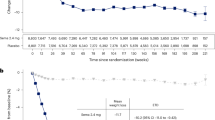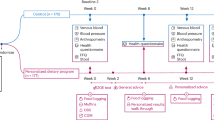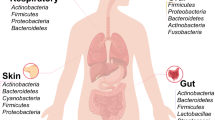Abstract
ASPIRIN is the most widely consumed drug on Earth. Although adverse reactions to its use are relatively rare, they are nevertheless clinically common because of the universal use of this “everyman's medicine”. These complications may present as hypersensitivity reactions such as asthma and rhinorrhoea, but most often they take the form of gastric erosions and/or ulcerations with mucosal bleeding. The relative rarity of gastric complications of aspirin ingestion suggests that they occur only in individuals who, for one reason or another, are at greater risk or in circumstances, such as the prior abuse of alcohol, which favour their development. Several studies conducted in Australia provide an important clue to the identification of a population at risk from ingestion of aspirin. In 1963 Billington1,2 reported that the incidence of chronic gastric ulcer in women began to increase after 1943 in New South Wales, something which had not occurred in Australian men. Billington theorized that the factor responsible for this change in the epidemiology of peptic ulcer disease in that part of the world was extraneous and probably behavioural. Then, Chapman and Duggan reported a significant association between gastric ulceration in young women of New South Wales and the regular use of compounds containing aspirin3,4. They found no such association with gastric ulceration in males or with duodenal ulceration in either sex. Other Australian authors have confirmed the existence of an association between chronic usage of aspirin and gastric ulceration5,6. These well controlled clinical studies suggest that women who consume ASA regularly are at a greater risk of developing gastric complications than are men.
This is a preview of subscription content, access via your institution
Access options
Subscribe to this journal
Receive 51 print issues and online access
$199.00 per year
only $3.90 per issue
Buy this article
- Purchase on Springer Link
- Instant access to full article PDF
Prices may be subject to local taxes which are calculated during checkout
Similar content being viewed by others
References
Billington, B. P., Austral. Ann. Med., 12, 153 (1963).
Billington, B. P., Gut, 6, 121 (1965).
Chapman, B. L., and Duggan, J. M., Gut, 10, 443 (1969).
Duggan, J. M., and Chapman, B. L., Med. J. Austral., 7, 797 (1970).
Douglas, R. A., and Johnston, E. D., Med. J. Austral., 2, 893 (1961).
Gilles, M. A., and Skyring, A., Med. J. Austral., 2, 280 (1969).
Vandelli, I., and Scaltriti, F., Boll. Soc. Ital. Biol. Sper., 21, 77 (1943).
Brodie, D. A., and Hooke, K. F., Diges. Dis., 16, 985 (1971).
Quick, A. J., Amer. J. Med. Sci., 252, 265 (1966).
O'Brien, J. R., Lancet, i, 779 (1968).
Morgan, A. M., and Truitt, E. B., J. Pharm. Sci., 54, 1640 (1965).
Brodie, B. B., Udenfried, S., and Coburn, A. F., J. Pharmacol. Exp. Therap., 80, 114 (1944).
Rowland, M., and Riegelman, S., J. Pharm. Sci., 57, 1313 (1968).
Author information
Authors and Affiliations
Rights and permissions
About this article
Cite this article
MENGUY, R., DESBAILLETS, L., MASTERS, Y. et al. Evidence for a Sex-linked Difference in Aspirin Metabolism. Nature 239, 102–103 (1972). https://doi.org/10.1038/239102a0
Received:
Revised:
Issue Date:
DOI: https://doi.org/10.1038/239102a0
This article is cited by
-
Sex-associated preventive effects of low-dose aspirin on obesity and non-alcoholic fatty liver disease in mouse offspring with over-nutrition in utero
Laboratory Investigation (2019)
-
Analyses of the genetic diversity and protein expression variation of the acyl: CoA medium-chain ligases, ACSM2A and ACSM2B
Molecular Genetics and Genomics (2018)
-
Does sex difference influence the neuromuscular blocking potencies of vecuronium?
Journal of Anesthesia (1994)
-
Effects of tumor-promoting phorbol esters and lithium ions on the development of hydra from aggregated cells
Rendiconti Lincei (1993)
-
Pharmacokinetics of low-dose oral modified release, soluble and intravenous aspirin in man, and effects on platelet function
European Journal of Clinical Pharmacology (1988)
Comments
By submitting a comment you agree to abide by our Terms and Community Guidelines. If you find something abusive or that does not comply with our terms or guidelines please flag it as inappropriate.



